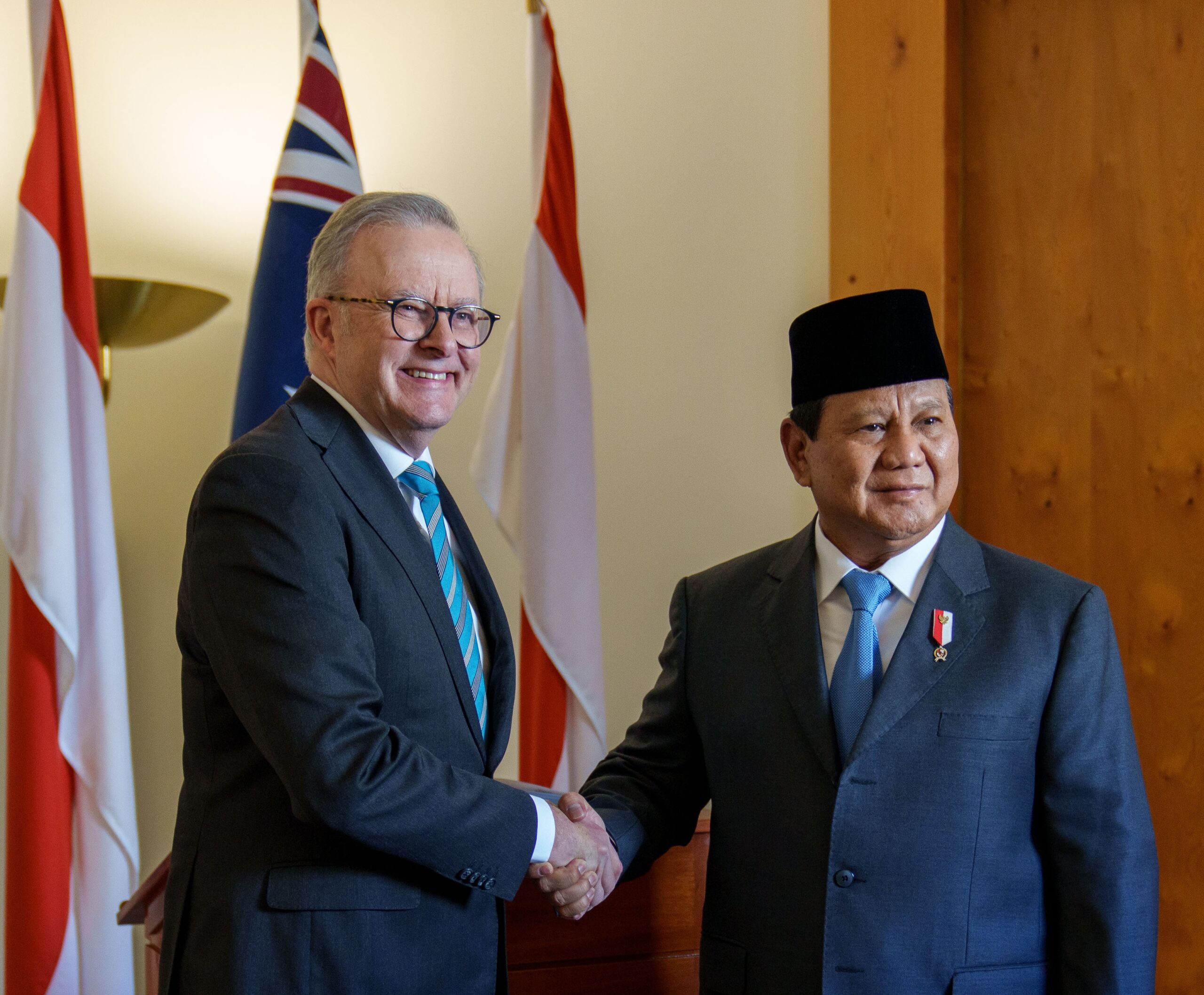Prime Minister Anthony Albanese made the announcement on Tuesday 20 August after a meeting with Indonesia’s Defence Minister and president-elect Prabowo Subianto in Canberra.
The agreement, which has been in progress since February 2023, will be officially signed when Defence Minister Richard Marles visits Jakarta later this month.
Marles said described the pact as “the most significant agreement that our two countries have ever made”.
“It will provide for much more exercises between our defence forces, it will see us working together in the global commons to support the rules-based order and, importantly, it will allow us to operate from each other’s countries,” he said.
It is expected that the deal will also include provisions for greater maritime cooperation in the disputed South China Sea.
Further details of the agreement have not been confirmed, and journalist were not able to ask questions about its contents.
Prabowo, who is set to become president on 20 October, said he was determined to continue Indonesia’s non-aligned foreign policy priorities.
The pact has raised concerns over the “deteriorating” human rights situation in the Indonesian province West Papua and Prabowo’s own human rights record.
In 1998, he was dismissed from his position as special forces commander for kidnapping student activists.
Earlier, he was indicated for his alleged involvement in the 1983 Kraras massacre, where as many as 200 Timorese men were killed, during Indonesia’s occupation of East Timor.
Prabowo has denied his involvement in the massacre.
Daniela Gavshon, Australia director at Human Rights Watch, said in a statement that, “Australian government leaders should urge Prabowo to fulfill the human rights-related commitments that previous Indonesian administration have failed to meet.”
“These include some difficult issues such as the mandatory hijab rules, the crackdown on LGBT people, and the government’s unwillingness to allow foreign journalists and United Nations officials to visit West Papua,” said Gavshon.
“Australian leaders should not let Prabowo’s egregious rights record deter them from forcefully raising current human rights concerns.”
The Guardian reported that neither Albanese nor Marles mentioned human rights in their statements.






